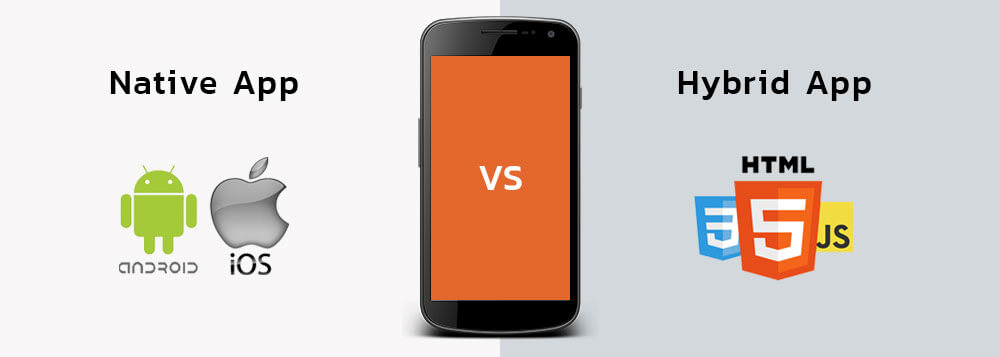Difference Between Cross-Platform, Native and Hybrid Mobile Development
With the popularity of Smartphones or Mobile Apps, competition between iOS and Android is also increasing frequently. When we choose to develop mobile application we often get confused which platform is suitable to develop the Application. The selection depends on different factors such as target audience, business goals,features you want and your budget. Here we are going to share details of different app development platforms to help you to choose the best one.
1.Cross Platform App Development: In cross platform apps JavaScript is used for functionality, HTML or CSS for designing. The idea of cross-platform solutions is for the optimization of the mobile application process, not for its usability. The apps developed using this approach are free from OS. The Cross Platform Apps are offer seamless functionality and are cost effective as compared to other platforms. These apps are built with React native, NativeScript, Appcelerator and Xamarin. Cross platform app development is a good choice for those who want multi-platform functionality. Check some advantages and disadvantages of this approach here:
Pros:
- Potential For Code Reuse
- Portable across platforms
- Easy to deploy
- User-Friendly Functionality
- Time- saving or Budget Friendly
Cons:
- Problem in Integration
- Poor User Experience
- Lack of Graphics and 3D Support
2.Hybrid App Development: Hybrid App Development is the combination of both Mobile web app development and native app development frameworks. HTML5, JavaScript, CSS3 are main technologies used to build applications. Applications are compiled using the native SDK. Hybrid App Development approach can be delivered in with fewer efforts. Hybrid Solutions are popular among the developers of cross-platform engines. The Functionality of Hybrid apps is similar to native apps so the user can hardly notice the difference.
Pros:
- Potential For Code Reuse
- Portable across platforms
- Easy to deploy
- User-Friendly Functionality
- Time- saving or Budget Friendly
Cons:
- Slower Performance and efficiency as compared to native apps
- Difficulty in some error removal
- It is a new Platform and may not work on all devices
3.Native App Development: Native App Development is one of the most used platforms by developers due to its vast user or developer friendly features. There are some tools that enable functionality of the app and can be anything from Xcode to Objective C to C++ or Swift. Java or Kotlin are used for android based apps. Applications build with native provide the highest user experience as compared to other applications. Native approach stores the app resources in the device memory and ensures maximum utilization of OS features
Pros:
- Easy To Deploy
- Efficient App Running
- Higher Performance
- Easy User Interface Customization
- Safe and Secure
- High-Quality Functionality and user experience
Cons:
- Development cost is expensive
- Unique source code prohibits code reuse
- Higher Maintenance Cost
- Time-Consuming as compare to some other platforms
Native applications are blazing fast and perform noticeably better than other web applications, But your final decision will depend almost entirely on your project needs. If you are planning to have your idea implemented as a mobile application, but not sure which platform to choose, It is better to outsource the app development service provider rather than having a permanent in-house setup. At Qualhon we can help you choose the right app for your idea. Feel Free to contact us anytime.
